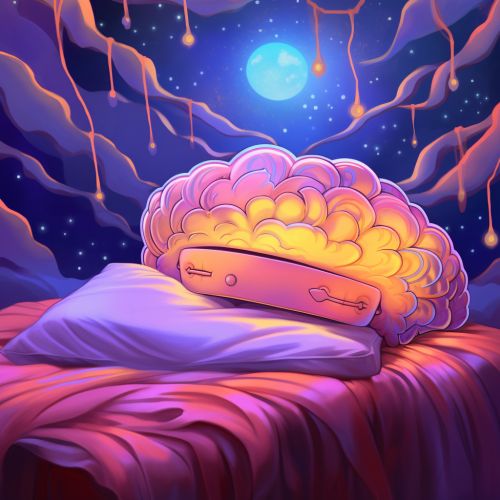Oneirology
Overview
Oneirology is the scientific study of dreams in terms of brain activity and the roles they play in memory, problem-solving, and overall mental health. The field is considered a branch of neuroscience, and it intersects with other disciplines such as psychology and psychiatry. The term "oneirology" comes from the Greek word "oneiros," which means dream, and "-logy," which means "the study of."


History of Oneirology
The study of dreams dates back to ancient times, with early civilizations attributing dreams to divine intervention or supernatural occurrences. However, the scientific study of dreams, or oneirology, began in earnest in the late 19th and early 20th centuries with the advent of psychology as a recognized field of study.
Dreaming and the Brain
Dreaming primarily occurs during the Rapid Eye Movement (REM) stage of sleep, a period characterized by high brain activity. The exact mechanisms of dreaming and the areas of the brain involved are still subjects of ongoing research in oneirology.
Functions of Dreams
Oneirologists have proposed several theories about the functions of dreams. Some suggest that dreams serve a biological function, aiding in the consolidation of memories and the processing of emotions. Others propose that dreams have a cognitive function, contributing to problem-solving and creativity.
Dream Interpretation
While oneirology focuses on the physiological processes involved in dreaming, the interpretation of dream content is a separate field of study often associated with psychology and psychoanalysis. However, some oneirologists also delve into dream interpretation from a neurological perspective.
Dream Disorders
There are several sleep and dream disorders that fall under the purview of oneirology. These include nightmares, night terrors, sleepwalking, and REM sleep behavior disorder, among others.
Future of Oneirology
The field of oneirology continues to evolve with advancements in neuroscience and technology. Future research directions include the exploration of lucid dreaming, the role of dreams in mental health, and the potential therapeutic applications of dream study.
